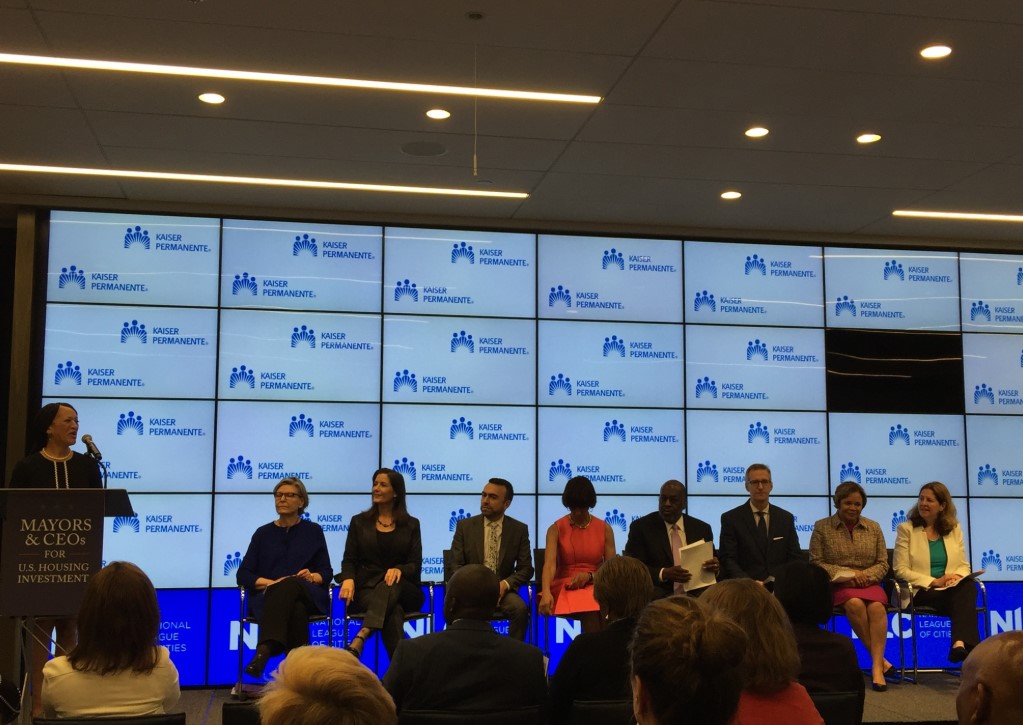If you live in the United States, odds are good that you know someone who struggles with high blood pressure. Also called hypertension, it is a major health problem in this country, affecting about 70 million adults, according to the American Heart Association. This “silent killer” typically has no warning signs or symptoms, but when left untreated it can lead to heart attacks, heart and kidney failure, stroke, and other health consequences.

As the overall awareness and subsequent treatment of this disease improves in the United States, physicians are finding that some patients have difficulty controlling their hypertension even with their prescribed medications. While little is known about those affected by this phenomenon, called “resistant hypertension,” these patients are often at a disproportionately higher risk for organ damage and other cardiovascular problems. John Sim, MD, of the Kaiser Permanente Los Angeles Medical Center, is the lead author of a new study that looked at the characteristics of those affected by resistant hypertension. We talked with him about the findings and what is being done to help patients.
Why are you interested in resistant hypertension?
Hypertension is highly prevalent, affecting 1 billion people worldwide. Historically, our management and control of hypertension has been relatively poor, but the good news is that we have been improving. For instance, the control rate for Kaiser Permanente patients with hypertension is around 85 percent, which is exceptional considering that the national rate is around 50 percent. The result of this success is that we’re gaining a better awareness of hypertension but at the same time, we’re finding a subpopulation of patients who are not responding to our medications despite our best attempts at treating them. With this in mind, it is important that we understand the causes of resistant hypertension and who is most affected by the disease, so that we can intervene with a management strategy and get it under control.
What do we already know about resistant hypertension?
There are many unknowns regarding resistant hypertension. First off, we know that hypertension itself is a risk factor for many different diseases and ultimately, it leads to mortality. When it comes to resistant hypertension, the fact that people cannot control their hypertension with medication suggests an even poorer prognosis. But much of what we know about resistant hypertension is based on assumptions – nobody really knows the prevalence of this disease and its impact on patient outcomes.
Provide us with some background on your study.
To start with, we only have estimates of what proportion of hypertension fits into this “difficult to treat” area. This leaves us with questions such as, “What types of people are most affected by resistant hypertension?” and “What can we do to treat them?” Our goal with this study was to answer some of these questions and identify those affected by resistant hypertension, which will hopefully lead to different management approaches to help treat this disease. We also wanted to more accurately identify resistant hypertension, gain a better sense of the pervasiveness of the disease, and characterize the population suffering from it. We felt that we could do a more accurate study because of Kaiser Permanente’s excellent work at treating hypertension and our extensive electronic health record database.
What did you find in this study?
We looked at the ethnically and socioeconomically diverse patient population from Kaiser Permanente Southern California and identified nearly 500,000 patients, or 21 percent, of adults 18 years or older with hypertension, as defined by the American Heart Association and the Joint National Committee on Prevention, Detection, Evaluation, and Treatment of High Blood Pressure. We found that of these patients, 12.8 percent met the criteria for resistant hypertension – meaning patients with hypertension that cannot be controlled with three or more medications or those who require four or more medications regardless of blood pressure. Overall, 7.9 percent of the patients had uncontrolled blood pressure despite taking three or more medications.
Which patients were more likely to be impacted by resistant hypertension?
In terms of patient characteristics, we found that patients with resistant hypertension tended to be older, more likely to be obese and were more often black. In addition, people with resistant hypertension had a greater prevalence of comorbid conditions such as diabetes, heart disease, and chronic kidney disease. It is also important to note that people with resistant hypertension appeared to be taking their medications more regularly than those with nonresistant hypertension.
What are the implications of these study findings?
This is what gets me excited. While there are approximately 70 million people in the United States with hypertension, we currently only have one treatment guideline. This is problematic as it assumes that all of these people have the same type of disease which, of course, is not the case. We need to rethink our guidelines for treating hypertension and focus on individualizing care for certain subpopulations.
What are some ways to individualize care for hypertension patients?
The black community is a population that historically has worsened control rates for hypertension. While some hypothesize that this is because of social economics, diet, or access to health care, we believe that a major factor could be that our guidelines are not exactly tailored to this population. For example, black patients tend to be more salt sensitive and thus respond better to general diuretic therapy (water pills). So, perhaps we should be treating certain populations with more efficacious medications in the first place instead of prescribing additional medications when the original therapy is not working. This is just one example of how these study findings could help populations manage their hypertension.
Do you plan on continuing this study in the future?
Yes! This study helped to identify the population and improve awareness of those with resistant hypertension. Now comes the more impactful part of this research, namely, what happens to people with resistant hypertension over a long period of time. As I mentioned before, we assume that this population could be at higher risk of heart disease, stroke and death but there are a lot of factors that go into this risk assessment. The fact that many of these people are likely on a number of medications makes assessing their risk of certain diseases that much more complicated. We are currently working on a comparative effectiveness study that will address this topic as well as others, such as understanding the blood pressure rate associated with the most ideal health outcomes for our patients. This upcoming study will likely be presented later this year. Ultimately, how we use this information to make changes and improve our patients’ health is the goal.



